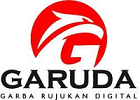Design and Implementation of Contextual Chemistry Learning Oriented towards Science Literacy to Support the Implementation of the Merdeka Curriculum [Perancangan dan Implementasi Pembelajaran Kimia Kontekstual Berorientasi Literasi Sains untuk Mendukung Diberlakukannya Kurikulum Merdeka]
Abstract
Salah satu tuntutan kurikulum merdeka adalah mengembangkan literasi dan numerasi, termasuk di dalamnya literasi sains. Literasi sains dapat dikembangkan melalui pembelajaran berbasis masalah, yang kental dengan kontekstual. Kegiatan pengabdian kepada masyarakat ini bertujuan untuk membekalkan prinsip-prinsip literasi sains dalam perancangan dan implementasi pembelajaran kimia kontekstual. Metode dalam penulisan artikel ini adalah difusi IPTEK dengan mendeskripsikan hasil produk berupa lembar kerja peserta didik (LKPD) bagi kelompok sasaran dan uji coba terbatas produk ketika diimplementasikan di sekolah dan advokasi berupa pendampingan ketika implementasi dan penulisan artikel jurnal. Kegiatan pengabdian Masyarakat ini menghasilkan (1) tiga jenis LKPD dengan judul “Global Warming”, “Sintesis Biodiesel”, serta “Nanopartikel dan Nanoteknologi” yang mengakomodasi pembelajaran berbasis masalah; (2) aspek pengetahuan literasi sains yang meliputi konseptual, prosedural dan epistemik dapat diikuti dengan baik oleh seluruh peserta didik yang menggunakan LKPD yang dikembangkan; dan (3) dihasilkan dua artikel penelitian untuk diterbitkan di jurnal nasional.
One of the demands of the Merdeka curriculum is to develop literacy and numeracy, including science literacy. Science literacy can be developed through problem-based learning, rich in contextual elements. This community service aimed to impart the principles of science literacy in designing and implementing contextual chemistry learning. The method used in writing this article was the diffusion of science and technology by describing the results of the product in the form of student worksheets for the target group and limited product trials when implemented in schools, as well as advocacy in the form of mentoring during implementation and journal article writing. This community service resulted in (1) three types of student worksheets entitled “Global Warming”, “Biodiesel Synthesis”, and “Nanoparticle and Nanotechnology” that accommodate problem-based learning; (2) the aspects of science literacy, including conceptual, procedural, and epistemic knowledge, can be well followed by all students using the developed worksheets; and (3) two research articles for publication in national journals.
Keywords
Full Text:
PDFReferences
Aji, N. R. (2016). Pengintegrasian konteks nanoteknologi dalam pembelajaran kimia melalui contextual learning untuk meningkatkan keterampilan proses siswa. Prosiding Seminar Nasional XI Rekayasa Teknologi Industri dan Informasi Sekolah Tinggi Teknologi Nasional Yogyakarta, 199–202.
Allison, E., & Goldston, M. J. (2018). Modern scientific literacy: A case study of multi literacies and scientific practices in a fifth grade classroom. Journal of Science Education and Technology, 27(3), 270–283.
Ambrogi, P., Caselli, M., Montalti, M., & Venturi, M. (2008). Make sense of nanochemistry and nanotechnology. Chemistry Education Research and Practice, 9(1), 5–10.
Arnyana, I. B. P. (2019). Pembelajaran untuk meningkatkan kompetensi 4C (communication, collaboration, critical thinking dan creative thinking) untuk menyongsong era abad 21. Prosiding: Konferensi Nasional Matematika dan IPA Universitas PGRI Banyuwangi, 1(1).
Astuti, S., Danial, M., & Anwar, M. (2018). Pengembangan LKPD berbasis pbl (problem based learning) untuk meningkatkan keterampilan berpikir kritis peserta didik pada materi kesetimbangan kimia. Chemistry Education Review (CER), 1(2), 90–114.
Bjork, Christopher. (2016). High-stake schooling: what we can learn from japan’s experiences with testing, accountability, and education reform. Chicago, IL: The University of Chicago Press.
Dieni, W.E.F., Hernani, H., Kaniawati, I. (2022). Applying the education for sustainable development approach to energy instruction design for encouraging scientific literacy of junior high school students. Jurnal Pendidikan MIPA, 23(2), 670–680.
Dinn, W., (2024). Kajian Akademik Kurikulum Merdeka. Jakarta: Pusat Kurikulum dan Pembelajaran Badan Standar, Kurikulum, dan Asesmen Pendidikan, Kementerian Pendidikan, Kebudayaan, Riset, dan Teknologi.
Eilks, Ingo. (2002). Teaching 'biodiesel': A sociocritical and problem-oriented approach to chemistry teaching and students first views on it. Chemistry Education: Research and Practice in Europe, 1(3), 77–85.
Gehrke, P. J. (2018). Public understanding of nanotechnology: how publics know. in nanopublics. Palgrave Pivot, Cham., 21–37.
Jones, R. A. L. (2018). Between promise, fear and disillusion: two decades of public engagement around nanotechnology. 2018 IEEE 13th Nanotechnology Materials and Devices Conference (NMDC), 1–4.
Lu, M., Mata, A., & Liu, J. (2020). Making biodiesel from waste: a versatile chemistry module to incorporate sustainability education. ACS Symposium Series, 93–112.
Mesterjon, Suwarni, & Selviani, D. (2020). Project-based learning model to increase results and student activities. Technium Social Sciences Journal, 9, 114–118.
Nadhifa, E. R. (2024). Pengembangan lembar kerja peserta didik (LKPD) kimia berbasis problem-based learning sesuai kurikulum merdeka. Jurnal Riset Pembelajaran Kimia. 9(1), 49–55.
Nath, B., Das, P., & Kalita, S. (2019). Basumatary waste to value addition: utilization of waste brassica nigra plant derived novel green heterogeneous base catalyst for effective synthesis of biodiesel. J. Clean. Prod., 239, 118112.
National Research Council of the National Academies. (2011). Climate change education – goals, audiences, and strategies. A workshop summary. Forrest and Feder, rapporteurs. National Academies Press
OECD. (2020). Curriculum (Re)Design. Paris, France: OECD.
Perkasa, M., Agrippina, & Wiraningtyas. (2017). Pembelajaran kimia berorientasi sustainable development untuk meningkatkan kesadaran siswa terhadap lingkungan. Jurnal Sainsmat, 4(2), 63–72.
Schleicher, A. (2023). Programme for International Student Assessment: PISA 2022 Insights and Interpretations. OECD.
Sumarni, R., Soesilawati, S.A., Sanjaya, Y. (2021). Literasi sains dan penguasaan konsep siswa setelah pembelajaran sistem ekskresi menggunakan pedoman praktikum berbasis literasi sains. Assimilation: Indonesian Journal of Biology Education, 4(1), 32–36.
Wakil, M.A., Kalam, H.H., Masjuki, A.E., Atabani, & I.R. Fattah. (2015). Influence of biodiesel blending on physicochemical properties and importance of mathematical model for predicting the properties of biodiesel blend Energy Convers. Manag., 94, 51–67
Wan, Y., Ding, X., & Yu, H. (2023). Pre-service chemistry teachers' understanding knowledge related to climate change. Chem. Educ. Res. Pract, 24, 1219–1228.
Wunderling N., Donges J. F., Kurths J. and Winkelmann R., (2021), Interacting tipping elements increase risk of climate domino effects under global warming, Earth Syst. Dynam., 12(2), 601–619.
DOI: https://doi.org/10.17509/jpi.v3i1.70353
Refbacks
- There are currently no refbacks.

This work is licensed under a Creative Commons Attribution-NonCommercial-ShareAlike 4.0 International License.



